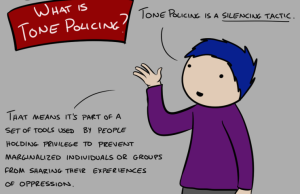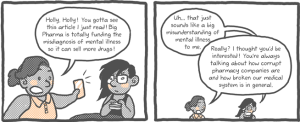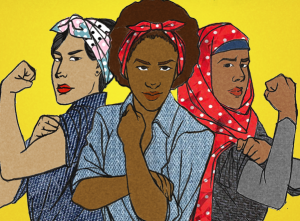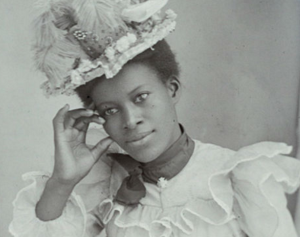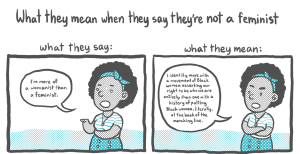The topic of abortion is divisive for most people.
I find it very unlikely that we will all agree on the morality of abortion, because while scientific inquiry can enlighten us on whether a fetus feels pain or has a beating heart, people will often feel a deep attachment to their cultural upbringing and/or their faith.
As a Dominican immigrant, I understand very well the cultural taboo around abortion and sexuality.
All Latin American countries – except for Cuba, Puerto Rico, and Guyana – prohibit abortion. Some countries, like Colombia and Argentina, will permit an abortion only if it risks the life of the mother. But most countries – including Dominican Republic, El Salvador, Honduras, Chile, Haiti, and Nicaragua – prohibit abortions under all circumstances.
In Latin America, there are 31 unsafe abortions per 1,000 women aged 15 through 44, and 12% of all maternal deaths are due to unsafe abortions.
Abortion is illegal in Latin America not because women don’t want or need abortions, but because the Catholic Church has a tight grip on politics – a legacy left over from colonialism at the hands of the Spanish and Portuguese crowns in the 16th and 17th century.
And while Europe and the United States were legalizing abortion and gaining equality for women, Latin American women were fighting against brutal dictatorships and political corruption through most of the 1970s and 1980s.
Growing up in a culture where abortion is a taboo and illegal means that we don’t develop the vocabulary needed to organize. We use euphemisms because abortion is considered such a great sin that it’s too uncomfortable to even speak about.
But the issue with abortion is that when a woman needs one, she will get one.
And personal beliefs on the morality of abortion and what constitutes life might play a big role in how we feel about the procedure, but the will to survive is often much stronger.
In July of 2013, a Salvadorian woman and mother of one named Beatriz, who suffers from lupus and kidney failure, was denied an abortion after an ultrasound showed that her fetus was developing without a brain.
In July of 2012, a 16-year-old girl named Esperancita from the Dominican Republic died after being refused chemotherapy to treat her acute leukemia, because it would cause her to miscarry her 3-week-old fetus. After ten weeks of debate on whether to allow her to receive treatment, she suffered a miscarriage and went into cardiac arrest.
When Esperancita’s mother lost her child, she said, “My daughter’s life is first. I know that [abortion] is a sin and that it goes against the law…but my daughter’s health is first.”
These are just two of the stories that caught the attention of American media.
Meanwhile, women and girls as young as 10 years old are accused of manslaughter for having a miscarriage and sentenced to 30 years in jail.
The Latino community is not a monolith, but we do come from countries that are deeply Catholic and conservative.
And that means that as much as I (and other Latin@s) might personally speak up for abortion access, our culture pushes back.
How we approach the issue of abortion access with members of communities where speaking openly about abortion has dire consequences is the key to change.
1. Acknowledge and Respect Our Beliefs
Our culture is important, because for many of us it is the only piece of home we get to bring with us as immigrants.
If you are discussing abortion with the Latin@ community as a member of the community or as an outsider, acknowledge that you understand our cultural and religious beliefs might be conservative and that you respect our personal and/or religious beliefs about abortion.
Then talk about how important it is to also acknowledge that we don’t know and can’t understand why someone might make a decision we don’t agree with.
Explain that you also have your beliefs and they matter, but we are not in the position to impose them on others.
Most people will appreciate that you take their values seriously and that makes them more willing to understand.
2. Watch Your Words
Because the Latin@ community tends to have conservative values, or family members who are conservative, we don’t develop the vocabulary to discuss abortion access.
My entire family knows that I am a feminist who advocates for easier and safe abortion access, but I still wince when I say “abortion” in front of them.
The word carries a lot of political, social, and religious weight that makes people uncomfortable, but it shouldn’t stop the conversation on its track.
When talking to the Latin@ community, especially a group that is more conservative or are recent immigrants, use the phrase “terminating a pregnancy” instead of “having an abortion.”
It’s not that we are incapable of discussing abortion, but that the topic needs to be approached in terms that are less loaded.
Another very effective way to discuss the importance of safe and legal abortion access is by campaigns that put the attention on how it affects others.
Planned Parenthood is running the Not in Her Shoes campaign, which focuses on how we cannot make decisions for someone else because we are not in their situations.
Ipas runs the Think About It campaign that encourages people to think about how the criminalization of abortion affects women and their families. It has been highly effective in spreading awareness in Latin America and the Latin@ community.
3. More Than ‘Pro-Choice’ and ‘Pro-Life’
Labels don’t represent how people really feel and the challenges that they face in their communities and relationships.
Oftentimes, women who request that their partners use condoms are seen as accusing their partners of infidelity, or of being cheating partners themselves – a serious and possibly life-threatening situation for any woman to find herself in.
In a study on Dominican women and abortion spearheaded by Planned Parenthood, a Dominican woman said: “You use a condom when you are not with your husband, when it is something informal. If I have my husband, I don’t use a condom. I use another method to avoid pregnancy.”
The trouble with the right to choose is that it doesn’t really help the woman who doesn’t have enough clout in her relationship to choose which type of contraception to use, and whether or not to have an abortion.
In order to truly help women, we need to focus on the reasons why they might be seeking abortions, and the reasons why it might not be feasible for them to discuss it openly.
4. Understand the Roadblocks to Abortion Access
Without financial, physical, and social access, a person’s right to an abortion doesn’t mean anything.
In fact, immigrant women in the United States often opt to self-induce abortion with medications such as Misoprostal (an ulcer medication that may cause miscarriage).
The reasons why they choose to do this instead of going to a clinic vary.
Some women do not have the funds to get an abortion at a clinic and therefore opt for the significantly cheaper medication.
Other women are simply unaware that abortion is legal and readily available in most cases, including covered by Medicaid for all eligible individuals regardless of immigration status in New York.
The big issue is that many Latina immigrants find themselves without adequate information and access to reproductive health care services.
For example, Gabriela Flores, a migrant farm worker in South Carolina, was put in jail for taking Misoprostol to self-induce an abortion because in South Carolina, an abortion must be performed by a licensed physician.
When women don’t know their options, they are at risk for unsafe abortions and unfair laws.
***
The Latin@ community is just as diverse as any other community.
We come from different countries, with different dialects, and with vastly different laws and governments.
Yet, the lack of maternal health and abortion access is a connecting thread from Argentina to Mexico.
I use the term “conservative” often because I want to explain how entrenched our Catholic and conservative governments are in our culture and society.
It doesn’t mean that we are all right-wing Republicans, or Bible-thumping Christians (though I am sure there are some of us that are). It means that we simply come from countries that hold these values on a pedestal.
Only mothers who sacrifice their lives for their children are considered heroes, like the story of Jenni Lake who stopped her chemotherapy treatments for tumors in her brain and spine to carry her baby to term and give birth. While mothers like Esperancita and Beatriz are vilified for wanting to live.
I often tell people “it’s not about me or you” when they try to explain to me why I am morally corrupt for promoting abortion access and comprehensive sexual education for all women.
And that is the truth.
It isn’t about what you and I believe. It’s about what women need.
[do_widget id=”text-101″]
Patricia Valoy is a Contributing Writer for Everyday Feminism. She is a Civil Engineer, feminist blogger, and STEM activist living in New York City. She writes about feminist and STEM issues from the perspective of a Latina and a woman in engineering. You can read more of her writings on her blog Womanisms, or follow her on Twitter @besito86. Read her articles here and book her for speaking engagements here.
Search our 3000+ articles!
Read our articles about:
Our online racial justice training
Used by hundreds of universities, non-profits, and businesses.
Click to learn more






